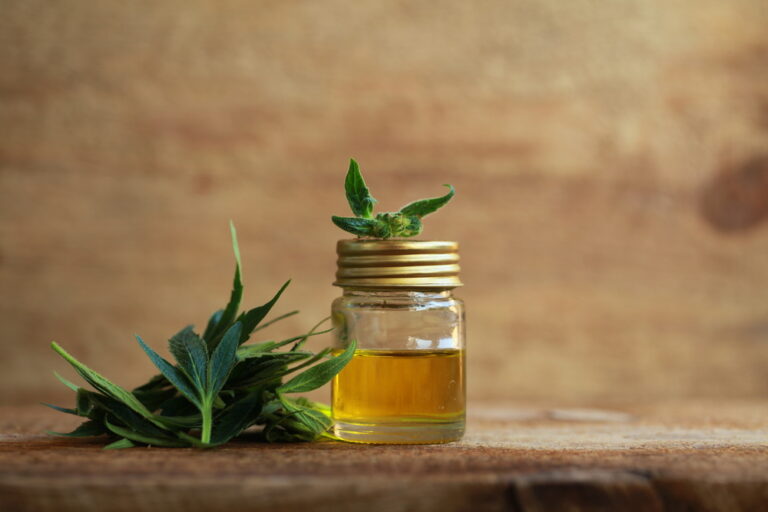The CBD industry is one of the hottest industries on the market. With legalization at the federal level and spreading state to state, dispensaries and online sellers have been rushing to try to snatch up their share of the market. The value of the CBD market could hit as much as $16 billion in the next five years.
Before trying to grab your share of the market, you need to understand the rules and regulations in regards to selling and shipping CBD.
Disclaimer: This content is only for informational purposes and does not constitute legal advice.
What is CBD?
CBD, also known as Cannabidiol, is one of the active components of Cannabis. It is being widely used to treat a lot of the same ailments as cannabis such as reducing stress and anxiety, preventing seizures in patients suffering from epilepsy, and for pain management, but the difference is that CBD does not contain THC. Tetrahydrocannabinol (THC) is the ingredient in cannabis that causes the psychoactive effects.
THC is also the ingredient that is still illegal in many states across the United States. CBD, on the other hand, has been declared legal by the federal government and almost all states have legalized it with some restrictions.
Is CBD Legal?
The 2018 Farm Bill made hemp-derived CBD, which is defined as any CBD that contains less than 0.3% THC, legal on a national level. It is regulated as any other crop by the U.S. Department of Agriculture.
However, legality can vary from state to state. It is currently still illegal in Idaho, Iowa, and South Dakota. Other states have different regulations in regards to growing and selling CBD oil and products.
Most of the regulations center around the amount of THC that can be found in the CBD oil. Some states only allow CBD produced from industrial hemp with a THC content of zero.
Other states allow for marijuana-sourced CBD as long as it stays below the federal law of 0.3% THC.
To keep yourself protected, there are a few things you will want to look for from your CBD supplier.
THC Levels Under 0.3%
You can usually find your supplier’s CBD levels right on their product info on the label or on their website. For CBD to be legal its THC levels must stay under 0.3%.
If the supplier uses industrial hemp, there will be zero THC in their CBD. If not, you will want to monitor it make sure they are staying below the legal level.
Is the Supplier Licensed?
If your supplier is not legally licensed to produce CBD, they could be shut down at any time, cutting off your supply and creating some legal problems for you as well.
You will of course face the problem of finding a new supplier in order to keep up with the demand of your customers. More importantly, if they were not hitting legal standards, you can be held accountable for selling a product that was actually illegal.
Using a licensed supplier reduces this risk to almost zero. In order to be licensed, the government has to approve of their production process, facility, and quality controls. If they are approved by the government and later fail to meet the legal standards, you have some legal protection.
How Do They Test?
Suppliers are allowed to test their THC levels in-house, however, a supplier that uses an unbiased outside party to handle their testing shows that they are serious about maintaining legal levels in their CBD. That further decreases any potential risk to your business.
Is It Legal To Ship CBD?
You can ship CBD if it falls below the legal THC limits, is being sent to a destination where it is legal, and follows the regulations that the individual shipping carrier has laid out for handling it.
USPS
The USPS requires you to sign a self-certification statement that verifies that you are selling legal CBD and that your supplier uses industrial hemp. The supplier must be licensed by the Department of Agriculture of the state from which you are shipping.
UPS
In order to ship CBD by UPS, you must be able to state where the raw materials were grown, provide an explanation for how they were processed to manufacture the end product, and verify who shipped the product to the supplier and how it was then delivered from the supplier to you.
DHL
In order to ship CBD products through DHL, they must contain less than 0.3% THC on a dry weight basis, the shipper is responsible for complying with all federal, state, and local laws, the shipper must retain records of complying with those laws, and the packaging cannot contain any branding or labels that indicate the contents.
Compliance with these restrictions is not required at the time of shipping but can be requested by DHL at any time.
FedEx
FedEx has a list of products that it doesn’t allow including hemp plants, hemp oil, seed oil, and CBD derived from hemp, however some of its language around CBD oil is pretty vague.
The CBD industry is rapidly expanding. In order to fully take advantage of the opportunity, it is important to have a partner providing CBD oil order fulfillment services that you can rely on. That is where ShipBuddies can help your CBD business scale and grow.
To learn more, request a price quote today.









